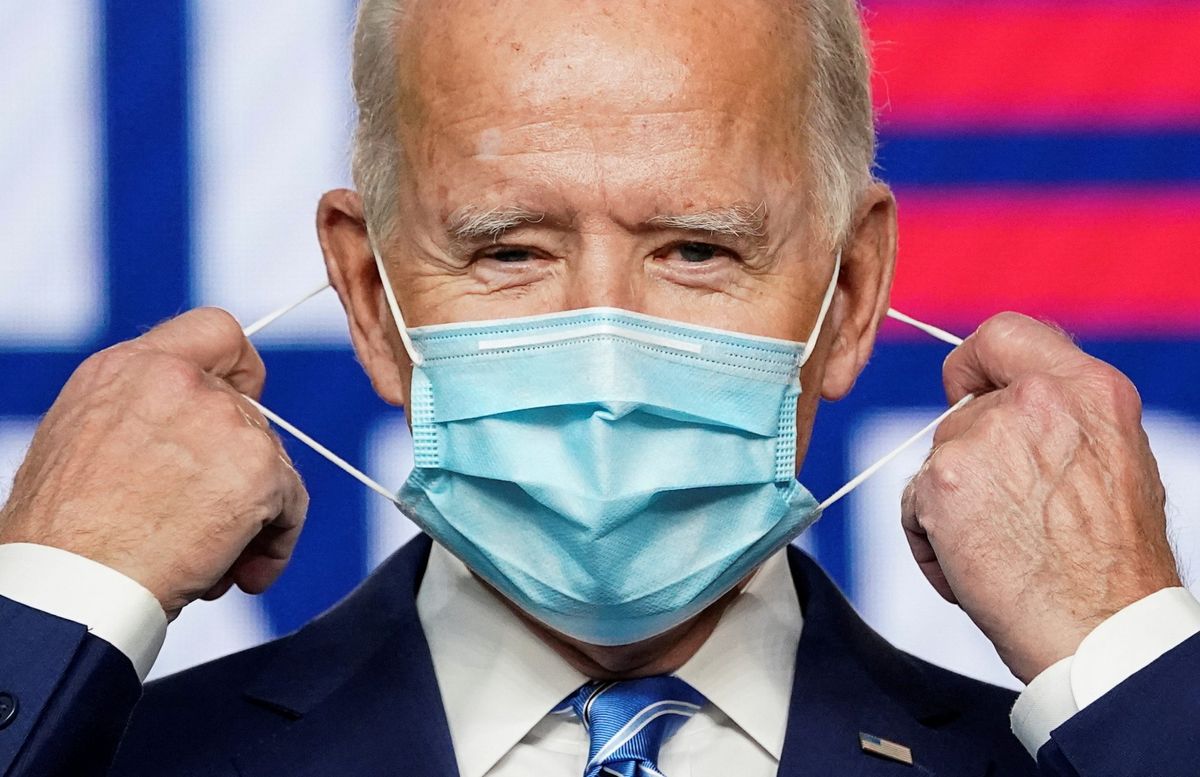What would a Republican Senate mean for Biden’s economic agenda?

A few minutes every morning is all you need.
Stay up to date on the world's Headlines and Human Stories. It's fun, it's factual, it's fluff-free.
The fate of President-elect Joe Biden’s economic ambitions hinges largely on two Senate runoff elections in Georgia this January.
With a win in the crucial state of Pennsylvania, Joe Biden is president-elect of the United States, but control of the US Senate is yet to be decided.
Whichever party controls the Senate will have significant implications for Biden’s presidential term, either allowing him to push full steam ahead with his own economic agenda or force him to make concessions to get legislation passed in a Republican Senate.
The fate of Biden’s economic ambitions hinges largely on two Senate runoff elections in Georgia this January, as a Republican-controlled Senate wouldn’t bode well for parts of Biden’s proposed economic agenda.
Steps to address the economy are increasingly necessary as America is still reeling from the coronavirus pandemic, with millions remaining unemployed and growth in certain sectors of the economy lagging.
While these are all issues – outlined on the Biden/Harris transition website – that could still be addressed in a Joe Biden presidency, even with an otherwise recalcitrant Republican majority in the Senate, many Democrats’ hopes about pushing ahead with an ambitious economic agenda after four years of President Donald Trump might be met with some harsh reality.
McConnell’s Senate
Democrat hopes of flipping the US Senate now rests on a very narrow and unlikely path to victory – two January runoff races in Georgia.
The two Democratic candidates, the Reverand Dr. Raphael Warnock and Jon Ossoff, will now face off against Republican incumbent Senators Kelly Loeffler and David Perdue.
The Democratic challengers face a tough fight, especially in a state that hasn’t elected a Democratic senator in 20 years and in a pivotal race in which the Republican candidates can motivate their bases by depicting their reelection as a chance to hinder President-elect Joe Biden’s agenda.
In the event that the Democratic challengers fail to flip the two seats up for grabs in Georgia, the Senate is likely to remain in Republican hands under Majority Leader Mitch McConnell’s control by a margin of 52-48, reduced from its current number by only one seat.
Should this eventuality come to pass, it will pose a difficult challenge for Joe Biden’s administration and, in particular, his economic agenda.
Biden’s platform includes a commitment to reversing Trump-era tax cuts, a broad green policy that commits the government to spend billions (trillions in the long term) in spending on green energy and infrastructure as well as an overall economic agenda that sees government spending as the best means to climb out of the economic pitfall faced during the coronavirus pandemic.
On tax cuts, many Senate Republicans will be eager to defend Trump’s 2017 tax plan, which is viewed as one of the key pieces of legislation passed during his presidency. The fact that the two parties proposed two incredibly different tax plans illustrates the lengths both sides would have to go to work out some compromise.
The significant spending and retooling of US energy proposed as part of Joe Biden’s climate plan, which itself would entail massive economic consequences for the US, is also likely to be a non-starter in a Republican Senate.
Even Republicans critical of President Trump, such as Utah Senator Mitt Romney, have made it clear that this agenda would fail in a Republican Senate.
According to Romney, voters had made it clear “they don’t want the Green New Deal” and “they don’t want to get rid of oil, and gas and coal.” Romney argued that any proposals to “the contrary will be met with a lot of resistance from the American people and from members of Congress.”
A Republican Senate control would also have consequences when it came to the passing of a second economic stimulus bill, which has still not come up for a vote in the Senate despite unanimous agreement on an initial bill back in March.
A major stimulus package is unlikely before January, the beginning of Biden’s presidential term, and with a Republican Senate, a final bill isn’t likely to match the demands some Democrats have been holding out for in negotiations.
Without control of the Senate, Democrats would likely have to accept a smaller stimulus package for the economy, which some economists, including Federal Reserve Chair Jerome Powell, have argued could lead to an incomplete recovery.
Some Republicans – such as South Carolina Senator Lindsey Graham, who prevailed over Democratic challenger Jaime Harrison – have become more vocal about the US debt now that Joe Biden has won the election. A Republican Senate could use these concerns to constrain any spending plans put forward by President Biden.
Graham has reportedly stated that should he become Chairman of the US Senate committee on the budget, he’d want to “finally begin to address the debt.” These concerns may appear cynical after years of exploding debt under the Trump administration, which was met by few complaints from Republican allies.
But all hope for Biden’s economic agenda is not yet lost.
Executive orders or negotiation?
Almost immediately after being sworn in, Biden could, as president, unveil an array of executive orders that would reverse Trump-era policies and agendas.
Executive orders could also allow President Biden to wipe away tens of thousands of dollars worth of student debt for individuals, in a move that would reach out to secure the support of progressives. This too could bypass a Republican-led Senate.
President Trump has already shown that executive authority can be stretched in imaginative ways. With a Republican Senate, President Biden may also adopt the practice of appointing acting cabinet secretaries – who may not otherwise secure the necessary Republican votes in the Senate – to the Treasury and Energy Departments, among others.
There is also a small chance that a Biden presidency could work with a Republican Senate.
President-elect Biden and Senator Mitch McConnell have a long working history together, with the two engaged in crucial negotiations during the Obama administration.
Mitch McConnell was also the only Republican Senator to attend the funeral of Biden’s son Beau in 2015. McConnell also led a bipartisan parting tribute to then-Vice President Biden in the Senate at the conclusion of the Obama administration.
It remains to be seen whether negotiation is even possible in a Senate stacked with Republicans who, at the time of writing, are still actively disputing the results of the election.
And, while Biden and McConnell may share a history of negotiation, McConnell notably made the Senate a “legislative graveyard” where hundreds of Democratic bills that passed the House ultimately died, suggesting that any negotiations in the future would be on McConnell’s terms, not Biden’s.
If this is the case, the best chance for Biden to seize upon his agenda will be Democratic victories in January’s Senate runoffs in Georgia. While the hope of victory in both races is small, it still represents the greatest hope for the enactment of President-elect Joe Biden’s economic agenda.
Have a tip or story? Get in touch with our reporters at tips@themilsource.com




Comments ()